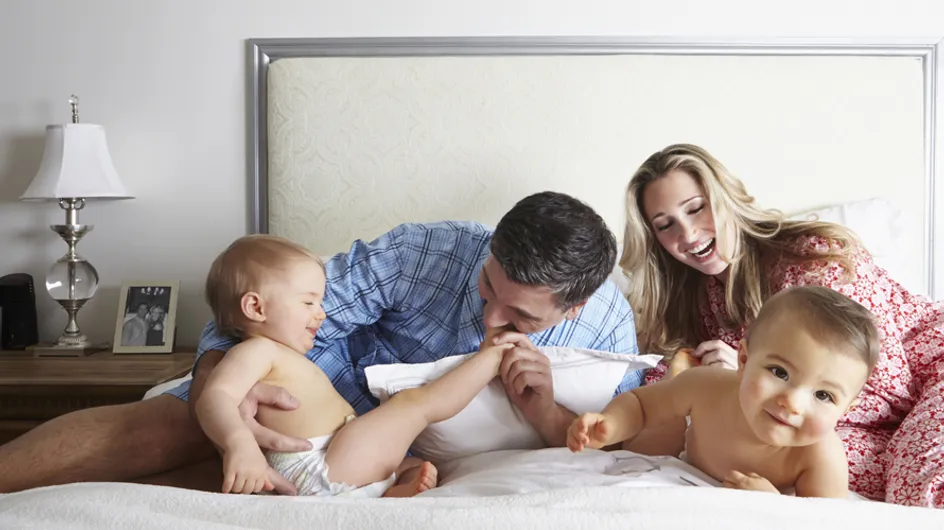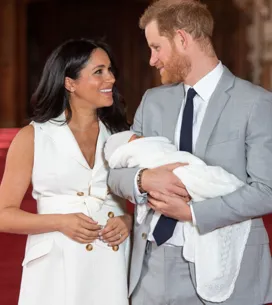Depending on the parents you speak to or the mummy blogs you frequent, elimination communication (EC) can be considered an extreme form of potty training. The "no nappy" method certainly conflicts with our idea of traditional potty training and, quite frankly, it puts a lot of pressure on both parent and baby to be successful.
But instead of writing off elimination communication as hogwash, I decided to find out why so many parents swear by it despite loud objections from family and friends. I enlisted our New Baby Checklist expert, Mary Oscategui, to explain the fundamentals of very early potty training. Mary's the author of The Baby Planner Profession: What You Need To Know, and Founder/CEO of the International Maternity & Parenting Institute and well placed to give some much-needed insight.
What is Elimination Communication?
"Elimination Communication is an approach [where] a parent or caregiver uses signals, cues, intuition and timing to recognize and attune to their child's innate rhythms and need to eliminate," Mary explains.
Parents know when their newborns are going #1 or #2. First their cute little faces get contorted with effort, then the lethal gas is released, and finally a satisfied smile is given once the deed's been done. In our society, we watch this process and laugh because we know the waste is going to be caught by a nappy and immediately cleaned up.
Well, those funny faces babies pull when their pooping aren't just for our enjoyment! It's an obvious cue that a natural process is occuring, and what do we normally do as adults when this begins to happen? Run to the bathroom, of course! EC simply asks parents to skip over the nappy step and get straight to the toilet.
When can I start EC?
Many elimination communication proponents argue that there isn't a "right time" to start potty training a child. For decades we've been told by doctors and other parents that 2 years old is when toddlers start expressing interest in using the toilet, but EC challenges that recommendation.
"EC can begin at anytime but optimally between birth and four months of age," Mary says, but don't worry if you've missed the four-month window! Mary has "worked with families whose child began EC at 12 months and at 18 months.
Is EC normal?
So your grandma might not be a fan of Elimination Communication but, Mary insists, "EC is normal although many may view it as extreme in the West."
Nevertheless, EC is a common potty training method around the world, says Mary. "Other countries like India, China, South East Asia, Latin America, Eastern Europe and parts of Africa non-diapering is the norm." So, yes, you probably won't see EC pamphlets at the pediatrician's office but that doesn't mean it isn't worth your inquiry.
Ok, so how do I begin?
The first step is quite simple. "Observation," Mary instructs. "Spend time to observe all your baby's signs and cues." Does your baby stare straight ahead when they have to poo? Start fussing and crying? Reach out for mummy? Mary says that "signs could include squirming, fussiness, and waking up from sleep." Become familiar with how your baby communications "I need to go to the bathroom!!"
Once you can spot these signs then EC will become easier but make sure your eyes are peeled because it is strongly encouraged that babies to go nappy-free during the observation period.
Wait...what'd you say? Diaper-free?
Yup. Diaper- free. One of the major benefits of EC is the lack of diaper waste. However, we understand the reluctance to start letting your 6 month old baby crawl around without coverage. Kids have accidents, that's life, buuut it hurts so much more when kids have accidents on carpet rather than a diaper (and some stains you just don't want to explain to your in-laws.).
Well, EC keeps the parent's needs in mind too. After the observation period is over and you have a deep understanding of your baby's bathroom cues. many EC experts endorse babies wearing a back-up diaper until they're 14 months old. At the end of the day, you're still reducing your diaper waste significantly, which is a major benefit to the smelliness of your home and the environment!
How do I catch the waste?
When you know your baby's about to go potty, holding them over the toilet so they can drop their waste in is ideal. However, sometimes the toilet is simply too far away, so some parents have "catching" bowls placed strategically around the house. Yup, they're exactly what you think they are.
If you can't stomach your baby pooping into a cereal bowl then keeping the more civilized plastic potty training toilets in certain rooms is recommended. Whatever you decide, just make sure you're catching your baby's waste in a way that mimicks sitting on a toilet!
When will my baby be potty trained?
If you start elimination communication very, very early then Mary says you can expect your baby to be fully potty trained "any time between the 6 months to 20 months as opposed to 36-38 months which is the average for potty training."
Keep in mind that every baby develops on their own time so don't lose confidence if it takes your little one longer than that!
Is EC easy?
All parents encounter setbacks on the potty training journey and EC is no different! Mary admits that EC parents "may go though a time where all of a sudden what started to look like a successful EC process is now going south and their baby refuses to pee or poo in the potty." She dubs this frustrating period of time the "Potty Pause."
"As babies develop it is natural for them to experiment as they learn. It is part of the learning process. So as a result it is important to revisit expectations and welcome the process," she explains. "If a parent gives up right away and begins using the diaper this may confuse the baby so it is best to pause, support baby through their learning process, change the measure of success and see what happens."
What if it's just too hard?
Just remember all the parents who were once in the same position as you are and keep trucking along!
"Stay committed," Mary says. If you abandon elimination communication in the middle of the process then your baby might regress back to needing diapers 24/7. "Trust your intuition and guide and keep in mind the many benefits of EC." Potty training is hard but not impossible!
What are the major benefits?
First of all, a reduction or total elimination of diaper waste! That's the most obvious positive to EC. According to Mary, other rewards include "financial savings, encouraging bonding between parents and baby, [diaper-free] may be more comfortable for baby, and avoid diaper rash for baby."
The final word...
Elimination communication might be different than what your parents did but, Mary says, "it's important to understand EC is NOT a forceful approach toward eliminating but rather one that works with a child's rhythm and timing along with parents/caregivers communication, intuition, and signs."
What do you think about elmination communication? Tweet us @sofeminineUK!
You Might Also Like:
New Baby Checklist: The Newborn Essentials Guide That's Budget-Friendly

















